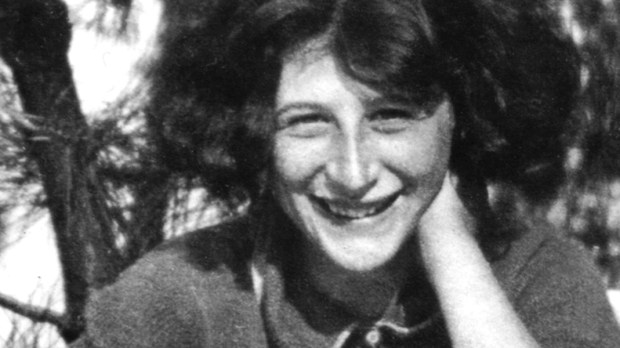Simone Weil died of illness in 1943 at the age of 34, the same year she wrote her last work. Over her short life, she had written many essays and theological books, but in spite of this was not well known. All this changed during the decades that followed. Famous writers such as T.S. Eliot discovered her work, describing her as a, “great soul and brilliant mind.” High praise that, perhaps, during her lifetime she would have struggled to accept. She was born with a physical disability that hampered the full use of her hands and she was often depressed at what she thought was her mediocrity.
I have to admit, I think she’s really great. I suffer from over-sensitivity and depression myself, and when as a young man I first encountered her writings it was as if I had found a true friend, someone who finally, really understood me.
With the passing of years, I’ve come to suspect I am not alone in the feeling. Each of us has a rich inner life that makes us who we are but also causes no small amount of suffering. The past clings to us as much as we would like to leave it behind, little mistakes and actions left undone cause turmoil, and bad habits and embarrassing personality traits are galling. We think about them, and fret over them, and sometimes steep in guilt over them. To the outside world, we present a placid, unruffled veneer, but if anyone accidentally touches on a secret sore spot, we may lash out defensively. Underneath it all, though, each person is a universe, a complex and beautiful soul that cannot be fully defined or understood.
This is where I find the work of Simone Weil so helpful. She doesn’t simply explore what it means to deal with interior unrest over insecurities and flaws, but she also works out the secret of how to begin to overcome them.
The way she discovered the path forward for herself is remarkable, and not at all what I expected. Typically, when we hear about overcoming bad habits and making positive life changes, there is a method, a set of practical steps towards achieving the goal. Such advice can be helpful, but it is not at all the sort of thing that Simone Weil had in mind. All her life she struggled with her personal issues — until she heard a monastery of monks singing.
Her health had begun to fail, so she spent six months with the monks in Solesmes, France, to rest and recuperate. While there, she went to the chapel and listened to the monks chant. Day after day, she was immersed in the beauty and peacefulness of the sung prayers. If you’ve ever heard chant, you might describe the sound as other-worldly. The voices gently undulate and sound like no other music on earth. As Weil listened, the chant worked its way into the marrow of her bones. She noticed she was feeling more peaceful, that her bad habits of second-guessing herself and wallowing in low self-esteem had receded. Why? She had learned the value of attention.
Weil writes, “We have to try to cure our faults by attention and not by will.”
What she means is that when we attempt to solve our flaws by sheer willpower, to “tighten up our muscles and set our jaws,” the effort is doomed to fail. Willpower can work for a while, but eventually the effort is exhausting and the stress results in a total collapse of the will. It’s similar to how a person who wants to get in shape might intensely exercise for a week or two, getting up at dawn to run miles and hitting the gym after work, but the willpower to make the effort is soon exhausted and the effort fails.
Better, says Weil, to practice the art of paying attention. By attention, she means fixing our minds on truly lovely things and soaking them in. Listen to monks singing, sit on the back porch with a cup of coffee to watch the clouds slowly roll across the horizon, or watch a baby at play. These activities may seem unrelated to anything in specific, but their value is that they increase our energy and bring us closer to the basic goodness of life.
Over time, attention to what is good and beautiful helps us to form desires that are pure. A person who wishes to get in shape may find that they actually love going out for a morning walk. Now, the desire isn’t to beat the body into submission through aggressive exercise, but to physically move out of sheer enjoyment. Another example: an overly-sensitive person like myself benefits greatly from practicing attention because it draws me out of my own, somewhat selfish thoughts about my own needs and desires. It allows me to take a break from myself and gather up positive energy.
This is how we create lasting change, not through a program or methodology, certainly not through willpower, but by paying attention. Simone Weil’s entire trajectory changed during her time at the Solesmes monastery, and reading about her experience put me on the right track to stop wasting energy, start paying attention, and understand that there is so much more to life than an internal dialogue about my personal failings. For Weil, it’s simply a matter of taking the time to look around and take it all in.

Read more:
4 Lessons from St. Augustine to keep us from unhealthy oversharing

Read more:
Why beauty will save the world and why that’s good news, even today

